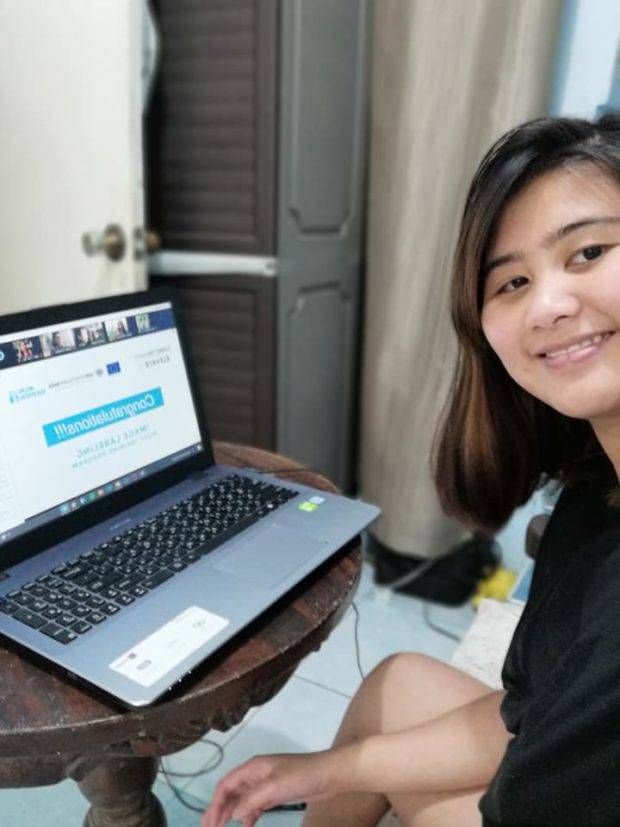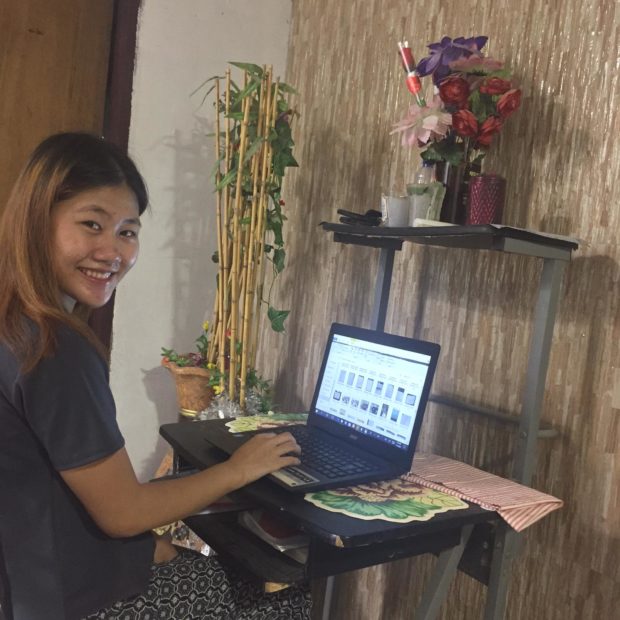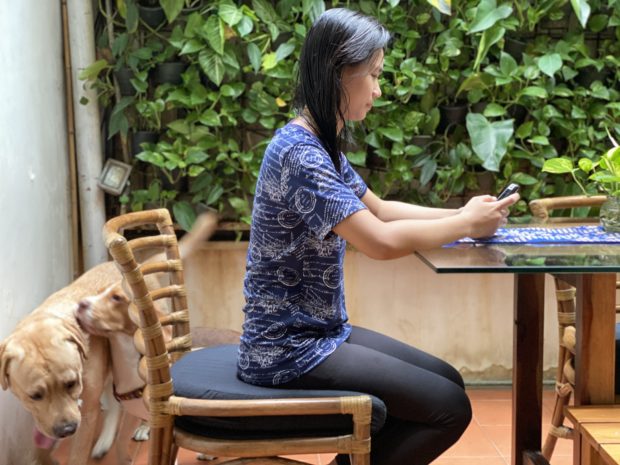Startup trains underskilled women in AI for free in Partnership with UN Women
With the Philippines bracing itself for the impact of artificial intelligence (AI), one social impact tech startup is making sure that Filipino women are prepared for the inevitable changes.
Philippines-based startup Connected Women creates opportunities for both skilled and underskilled women by training them to be data annotators, which are considered to be essential in any program that uses AI.
Labeling and categorizing images can earn data annotators around P500 per day, depending on their output. This is more than what many Filipino women earn in the informal economy due to lack of education or access to decent jobs. Outside NCR, the minimum wage ranges from P200 to P400 a day.
The training is part of the #WomenRiseAboveCovid program in partnership with the joint EU-UN Women program WeEmpowerAsia. This initiative is one of two tracks with the other focused on helping women business owners during and beyond the COVID-19 pandemic.
Founder Gina Romero said that the reputation of Filipinos for being hard working will help us stand out in this fast-growth market.
“As long as we keep advocating for the training, the tools, the knowledge, and the awareness about these types of opportunities, I think this industry will surely grow,” Romero said.
Connected Women plans to train 200 women by the end of the year and 1,000 more by next year.
Data labeling as a promising new outsourcing market
With more and more companies around the world using AI for their operations, the reality is that these machines still need to “learn”. This is where data labeling comes in. The process uses human intervention to train AI applications by labeling data such as images, text, or voice. The data is then labeled by the AI and verified by a human so that it can further improve its accuracy.
This industry is expected to be valued at more than USD 1 billion at the end of 2023 and USD 1.6 billion by the end of 2025. Countries like India, Romania, and the Philippines have started to jump on the bandwagon, employing thousands to work for companies such as Google, Microsoft, Walmart, General Motors, and more.
Connected Women started as a platform where entrepreneurs from all over the world can look for high-quality Filipina talent. Foreseeing this new demand from tech giants who need the services of data labelers, they have expanded their programs to include training women to become adept data annotators.
The Connected Women community consists of over 70,000 members with the majority coming from Philippine megacities like Manila, Cebu, and Davao. Connected Women are trying to reach smaller communities too, with the help of private sector partners and local government units.
During this pandemic, however, there is one uniting factor among these women – most of them were affected by the lockdown and sought other means of income during these trying times.
Seventy members were selected to be part of the initial pilot training for “Elevate AIDA (Artificial Intelligence Data Annotation)” where they were trained in basic data labeling skills such as image identification, classification, and categorization. These are women who previously did not have any knowledge of AI or data labeling.
UN Women’s Ma. Rosalyn Mesina, WeEmpowerAsia Philippines Country Program Manager, said that she is very happy to support this project and provide more opportunities for Filipino women to access decent and fair jobs.
She is hopeful that the pilot training supported by UNW WeEmpowerAsia will encourage other partners and private sector groups to consider investing in such programs which can open pathways for more women towards financial and income security, enabling them to contribute to the socio-economic wellbeing of their families and communities.
With the strengthening of the country’s internet infrastructure presenting a growing opportunity for those in far-flung communities who benefit from online work the most, Connected Women also partnered with the likes of the Department of Information and Communications Technology, Globe Telecom and Facebook, to provide access to the necessary training, tools and connectivity to make their initiative a success.
According to Yoly Crisanto, Globe Sustainability Officer and SVP for Corporate Communications, developing skills in digital technology becomes more important and those who can learn this will reap the benefits, especially because of the new normal.
“Globe is at the forefront of enabling digitalization as such we believe this initiative will help empower women by providing them with the necessary tools that can aid their training even while they are at home,” Crisanto said.
Flexible work as the future in the “new normal” landscape
One of the participants of the pilot test was Ida, a single mother and a working student. Because of the lockdown, Ida not only needs to provide for her two young children but also take care of them and do her daily chores around the house.

Ida
Her greatest challenge was looking for work that would allow her to stay home with her children.
“It gives opportunities to single mothers like me who have a hard time looking for work,” she said.
Janette, a former OFW who got displaced because of COVID-19, is another participant who said that she will recommend this work to her friends and family.
She was working in Qatar but had to come back to the Philippines because of the pandemic. Because of opportunities such as data labeling, which can be done online, women like Janette have a choice not to leave the country.
Another trainee is an 18-year-old juvenile stroke survivor, Rica. She was 16 when she had an Ischemic stroke which she felt limited her career options.

Rica
During the lockdown, she decided that she needed a job that she could do at home and will allow her enough flexibility as she continues with her physical therapy.
“I learned and discovered a lot of jobs I can do even while working from home. I also did not feel discriminated against,” Rica said.
With a daily pay of around P500 for categorizing batches of images, all the participants agreed that this was a reasonable rate. Tasks can be carried out at any time.
As an online job, data labeling falls into the broad category of “flexible work” that enables people to work the hours they would like, from anywhere in the world. This also gives corporations access to a global talent pool. Workers, on the other hand, can avoid the hassle of travel by working from home and have more flexibility to take care of household responsibilities.
Experts are saying that flexible work is the future of most industries in the “new normal” which has been accelerated by the COVID-19 pandemic. Businesses have been forced to implement a work-from-home policy, illuminating the effectiveness of this work arrangement.
Romero said that more and more women are seeing this type of work as an alternative to their corporate jobs. In fact, the whole country seems to be considering this “new normal” as a viable career option. The Philippines is currently ranked as the 6th fastest-growing freelance market, with a 35% growth from 2019.
“Our members want to learn about the different types of remote work and what skills they can bring online,” Romero said.
As an advocate of technology and the opportunities that platforms like Connected Women create, Romero believes that technology can be empowering for women at all levels.
“Technology is a game-changer for women and providing access to remote and flexible work means having a choice between staying in the workforce or being forced to drop out.”
